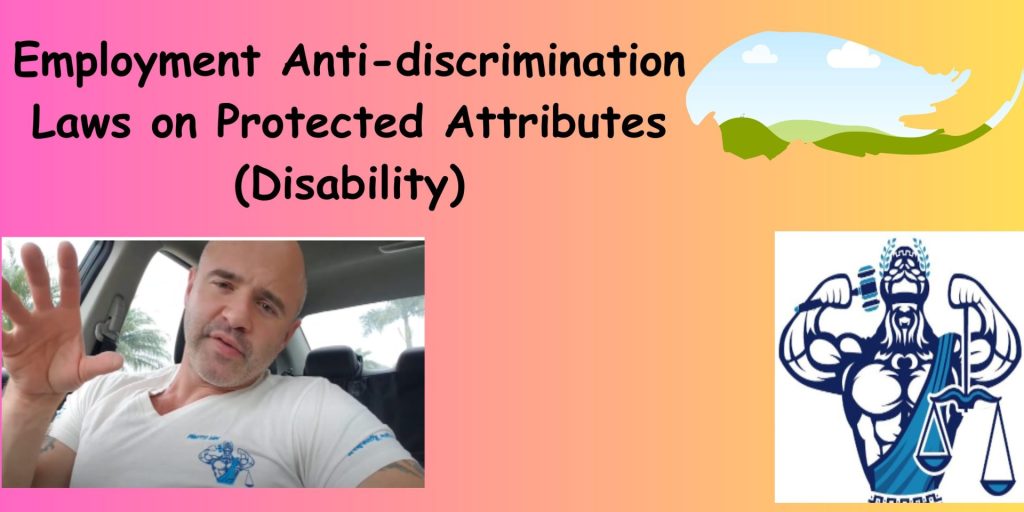Here at the Law Office of Vincent Miletti, Esq. and the home of the #UnusuallyMotivated movement, we take pride as a resilient and dependable legal services firm, providing such services in both a traditional and online, web-based environment. With mastered specialization in areas such as Employment and Labor Law, Intellectual Property (IP) (trademark, copyright, patent), Entertainment Law, and e-Commerce (Supply Chain, Distribution, Fulfillment, Standard Legal & Regulatory), we provide a range of legal services including, but not limited to traditional legal representation (litigation, mediation, arbitration, opinion letters, and advisory), non-litigated business legal representation and legal counsel, and unique, online legal services such as smart forms, mobile training, legal marketing, and development.
Still, here at Miletti Law®, we feel obligated to enlighten, educate, and create awareness, free of charge, about how these issues and many others affect our unusually motivated® readers and/or their businesses. Accordingly, to achieve this goal, we have committed ourselves to create authoritative, trustworthy, & distinctive content. Usually, this content is featured as videos posted on our YouTube Channel https://www.youtube.com/channel/UCtvUryqkkMAJLwrLu2BBt6w and blogs that are published on our website WWW.MILETTILAW.COM. With that, the ball is in your court and you have an effortless obligation to subscribe to the channel and sign up for the Newsletter on the website, which encompasses the best way to ensure that you stay in the loop and feel the positive impact of the knowledge bombs that we drop here!
As the authoritative force in Employment Law, it only seemed right to introduce one of the many upcoming series in which we introduce a variety of topics that looks to educate and deliver in a manner that only Miletti Law® can. In this regard, this blog is Part XX of our ongoing series on “Trade Secret Misappropriation & Restrictive Covenant Claims.” In Part XIX, we hammered on “Standing on Success in a Temporary Restraining Order (TRO) Application,” another crucial factor that determines the success or failure of being granted injunctive relief. Regarding this factor, we mentioned that if an employer succeeds in such a TRO application, the defendant is then enjoined from participating or taking part in certain conduct until a court has held a preliminary injunction hearing. We also added that in most cases, any additional documentary evidence and live witness testimonies are considered by courts during preliminary injunction hearings.
As a continuation of our discussion, we have shifted gears to focus on “Preliminary Injunction Hearing,” which is crucial in obtaining injunctive relief in our short blog titled “From a TRO Application to a Preliminary Injunction Hearing” and Part XX of the series.
From a TRO Application to a Preliminary Injunction Hearing
At times, a matter tends to proceed to a preliminary injunction hearing. In such a case, a court is likely to, as a way of enabling the parties involved to present their case more thoroughly, order expedited discovery even before the hearing commences. During this time, the court would be aiming to determine whether the preliminary injunction factors discussed in the past three blogs under this series have been satisfied by the movant. To do this, the presentation from either party is limited by a court since a preliminary injunction hearing is not a full-blown trial.
While hearings vary based on the jurisdiction where the matter was raised, a preliminary injunction hearing generally entails a presentation mix comprising of legal argument and evidence. Typically, the evidence produced at preliminary injunction hearings takes the form of documentary evidence that includes but not limited to (1) communications and documents associated with the suspected breach, (2) witness affidavits, and (3) live testimony. Accordingly, the employer seeking injunctive relief may call a number of witnesses should it be ordered (or elect). Examples of such witnesses are:
- Any existing client who may testify that the defendant-employee has engaged in client solicitations and, thus, violated one or more post-employment restrictions
- The defendant-employee’s former coworker, who might give testimony regarding client goodwill and/or relationships the employee had access to-and/or-
- The former supervisor of the defendant-employee who might provide testimony regarding any proprietary or confidential information the former employee was privy to.
Generally, the nature of the evidence, the judge presiding over the case, court rules, and jurisdiction influence the variation of whether to present live testimony or rest on written affidavits (and, if so, on what subjects and by which witness). For instance, a court may be able to understand, by allowing live witness testimony to be presented, the significance and context of written evidence such as documents or emails submitted by the employer in a written application.
This implies that irrespective of whether it chooses to present live testimony or not, an employer seeking preliminary injunction should critically evaluate and consider the inclination of the requisite preliminary injunction factors to its favor and, accordingly, warrant the relief requested. Particularly, in addition to formulating how a demonstration of the issue of irreparable if the requested relief is not granted by the court, the movant should be articulate in the relevant restrictive covenants and/or agreements at issue. For instance, a movant may demonstrate that they will suffer irreparable harm following the loss of client relationships and goodwill and/or the misappropriation of confidential information and/or trade secrets.
This goes without mentioning that movants should be ready and willing to be compliant with emerging issues that may impact how preliminary injunction hearings are conducted and organized. For example, during the peak of the COVID-19 pandemic, employers were required to familiarize themselves with any special procedures laid out by courts and confirm the logistics of preliminary injunction hearings. While the COVID-19 pandemic detrimentally court processes for many months, some courts had to implement particular procedures for fielding injunctive relief requests, while others would limit the ability of litigants to file new “nonessential cases.” These include some of the reasons why most courts would hold hearings virtually and remotely through computer programs such as Microsoft Teams or Zoom. The point is that in addition to ensuring that necessary fact witnesses are clued in and facilitated to attend virtual hearings, employers must carefully and deliberately plan how to present evidence effectively and navigate these procedures should such issues arise in the future.
In our next blog titled “How to Deal with a Denied Injunctive Relief Application” and part XXI of this series, we will shift gears and provide you with a hands-on guide on how an employer may deal with the denial of injunctive relief.
In the meantime, stay tuned for more legal guidance, training, and education. In the interim, if there are any questions or comments, please let us know at the Contact Us page!
Always rising above the bar,
Isaac T.,
Legal Writer & Author.
 Professional Legal & Business Services And Representation - English & Espanol!
Professional Legal & Business Services And Representation - English & Espanol!

 314-648-2586
314-648-2586 CALL US NOW
CALL US NOW








